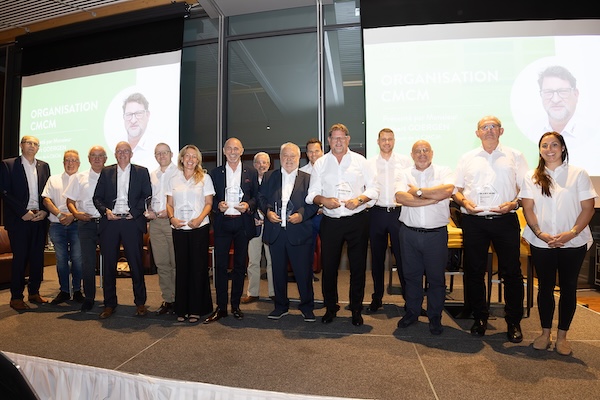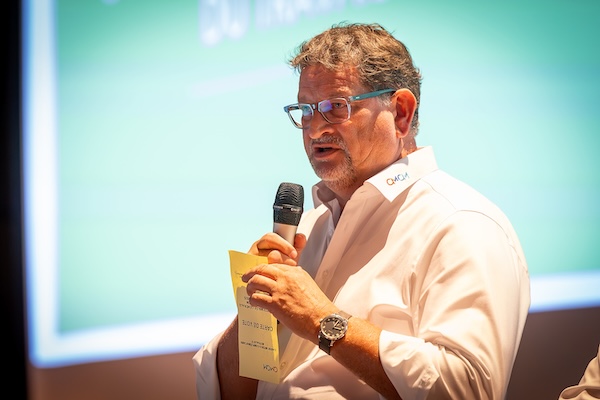 Credit: CMCM
Credit: CMCM
Luxembourg's health mutual fund, the Caisse Médico-Complémentaire Mutualiste (CMCM), held its second General Assembly (GA) on Tuesday 15 July 2025.
According to CMCM, the event marked an important milestone in its ongoing development. The meeting brought together 25 of the 33 affiliated mutual societies, with 97 out of 149 votes present or represented – reflecting strong and meaningful engagement.
CMCM President Gilbert Goergen opened the assembly by underlining the significance of the new statutes adopted in June 2025, describing them as enabling “a high-performing new structure” essential for the organisation’s future development. He thanked member mutual representatives for their trust in the Board and the new executive team, the fund reported.
Fränz D’Onghia, Health Director at Domaine Thermal Mondorf, a CMCM partner, presented recent innovations introduced at the Domaine Thermal.
Gilbert Goergen then provided a brief overview of the fund’s new governance structure. CEO Fabio Secci, along with CDO Patric de Waha, CPO Pit van Rijswijck and Executive Assistant Lara Marx, presented the full organisational chart. CMCM currently employs 75 staff members and plans to recruit four additional employees in the coming weeks in the areas of digitalisation, IT and security.
CMCM noted that an internal regulation, developed in collaboration with an external consultant, has been introduced to clarify the structures, roles and responsibilities of the fund’s various decision-making bodies. The regulation is intended to ensure “transparency, traceability, effectiveness and efficiency” in their operations.
Patric de Waha and Pit van Rijswijck outlined the key stages of CMCM’s ongoing digital transformation. Current priorities include the continued dematerialisation of internal processes, the development of a new IT architecture, and preparations for the planned rollout of Immediate Direct Payment (PID) and the European Health Data Space (EHDS) in March 2029. CMCM added that improving the ergonomics and accessibility of its mobile app and website also remains a top focus.
Speaking about the importance of digital accessibility and responsiveness, Pit van Rijswijck emphasised the urgency to act: “This year, 30,000 reimbursement claims were submitted to the dental team via the CMCM app. Members need to communicate with the CMCM through the mobile app. It is therefore crucial to act quickly to minimise reimbursement delays.”
Patric de Waha concluded with a reflection on CMCM’s approach to digitalisation: “We have learned from the past. Digitalisation is now managed with sobriety, discipline, and high standards. It serves operational performance and the satisfaction of both members and employees - not an abstract technological ambition.”
Fabio Secci presented developments within CMCM’s new “Patient Pathway” department, which aims to enhance the patient experience during hospital stays. The initiative is designed to “streamline and make the care journey more transparent” through better coordination among healthcare professionals. CMCM noted that member-patients will receive a satisfaction questionnaire after discharge, with a 70% response rate target. The collected feedback will be analysed and shared with hospitals to “optimise future care based on patient experiences.”
Yves Scharlé, Secretary General of CMCM, presented a new framework for the retrocession of contributions owed by CMCM to its member mutual societies, aimed at encouraging more active involvement in recruiting new members. The proposal was adopted with 88 votes in favour, three abstentions and six votes against.
CMCM reported that, to conclude the assembly, President Gilbert Goergen reassured members of the Board of Directors’ firm intention to reach a fair agreement in the ongoing negotiations regarding the collective labour agreement for CMCM employees.
(Caption: Gilbert Goergen, CMCM President; Credit: CMCM)









